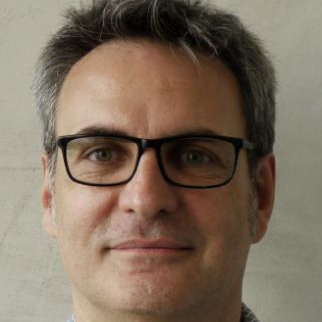Mobilizing Higher Education for the 2030 Agenda
A special issue of Sustainability (ISSN 2071-1050). This special issue belongs to the section "Sustainable Education and Approaches".
Deadline for manuscript submissions: closed (31 August 2021) | Viewed by 32821
Special Issue Editors
Interests: education for sustainable development (ESD); sustainability literacy; sustainability in higher education
Interests: transformative change; sustainability
Interests: learning; educational impact
Special Issue Information
Dear Colleagues,
Sustainability and education are intertwined. In order to achieve the 2030 Agenda and its 17 Sustainable Development Goals (SDGs), we need to empower citizens and future decision makers so that they are able to face these challenges and to act collectively toward a sustainable future. Specifically, SDG4 on Quality Education and its target 4.7 emphasizes the role of education for sustainable development (ESD): “by 2030 ensure all learners acquire knowledge and skills needed to promote sustainable development...”. The 2015 Incheon Declaration and Framework for Action for the implementation of Sustainable Development Goal 4[1] sets out a new vision for education for the next fifteen years and highlights the lifelong learning approach.
As a key actor to empower future decision-makers throughout their carrier, higher education plays a crucial role in promoting a paradigm shift toward sustainable development by developing sustainability awareness and knowledge/skills and competences/mindset and behaviors. This paradigm shift requires a systemic vision that includes multiple nexuses between topics and challenges and allows analysis from the macro level of ecosystems and socioeconomic systems to the micro level of organizational and individual responsibility. A stronger continuity between higher education and further education is also needed to connect sustainability skills and competences to the job market and to enable future as well as current practitioners and decision makers to become agents of transition toward Sustainability.
Achieving the 2030 agenda also requires a transformative approach of higher education through teaching practices and learning experiences, research agenda and valorization, campus management, and leadership by exemplarity. Transforming higher education and further education to face the sustainability challenges is supported by international initiatives. By launching UN Higher Education Sustainability Initiatives (HESI) at Rio+20, 8 UN agencies and more than 300 higher education institutions recognize the need to have a unique interface between UN agencies and higher education institutions to scale up the impact of higher education to meet the 2030 agenda.
Aim of the special issue
The aim of this Special Issue is twofold. Firstly, it seeks to highlight inspiring and/or innovative examples and best practices from higher education and further education, accelerating the paradigm shift toward sustainability. Secondly, this Special Issue seeks to identify leverage points to accelerate change in and through higher education and further education.
The scope of the contributions may deal with the macro level of institutional policies and national or international initiatives, the meso level of higher education institutions and campuses, as well as the micro level of individual knowledge, skills, mindset, and behaviors.
We invite theoretical contributions as well as empirical contributions and applied and action-oriented research dealing with sustainability and higher education/further education.
Themes of interest include—but are not limited to—the following:
- What can we learn from innovative practices and experiments of integrating sustainability in higher education and further education?
- How can we increase awareness and literacy on SDGs in higher education and further education?
- How can we develop competences and validate their acquisition:
- Curriculum change (integrating the SDGs, learning objectives, etc.);
- Learning experiences (active learning, peer learning, etc.);
- Training the trainers;
- How can we achieve a mindset shift in and through higher education and further education?
- What behavior changes lead to sustainability?
- What are the main drivers for sustainability change in higher education and further education?
- What is the role of the assessment/ratings/rankings/accrediting bodies to accelerate sustainability transition in higher education and further education?
- What is the role of national and international institutions?
- What are the main obstacles preventing change?
- How can we scale up the impact of higher education and further education toward sustainability?
- How can we connect higher education and sustainable jobs/carrier opportunities?
Reference:
[1] https://unesdoc.unesco.org/ark:/48223/pf0000245656
Prof. Aurélien Decamps
Mr. Benoit Martimort-Asso
Dr. Carine Royer
Guest Editors
Manuscript Submission Information
Manuscripts should be submitted online at www.mdpi.com by registering and logging in to this website. Once you are registered, click here to go to the submission form. Manuscripts can be submitted until the deadline. All submissions that pass pre-check are peer-reviewed. Accepted papers will be published continuously in the journal (as soon as accepted) and will be listed together on the special issue website. Research articles, review articles as well as short communications are invited. For planned papers, a title and short abstract (about 100 words) can be sent to the Editorial Office for announcement on this website.
Submitted manuscripts should not have been published previously, nor be under consideration for publication elsewhere (except conference proceedings papers). All manuscripts are thoroughly refereed through a single-blind peer-review process. A guide for authors and other relevant information for submission of manuscripts is available on the Instructions for Authors page. Sustainability is an international peer-reviewed open access semimonthly journal published by MDPI.
Please visit the Instructions for Authors page before submitting a manuscript. The Article Processing Charge (APC) for publication in this open access journal is 2400 CHF (Swiss Francs). Submitted papers should be well formatted and use good English. Authors may use MDPI's English editing service prior to publication or during author revisions.
Keywords
- SDG learning
- sustainability literacy
- higher education and further education
- sustainable change
- mindset shift
- sustainability competences







